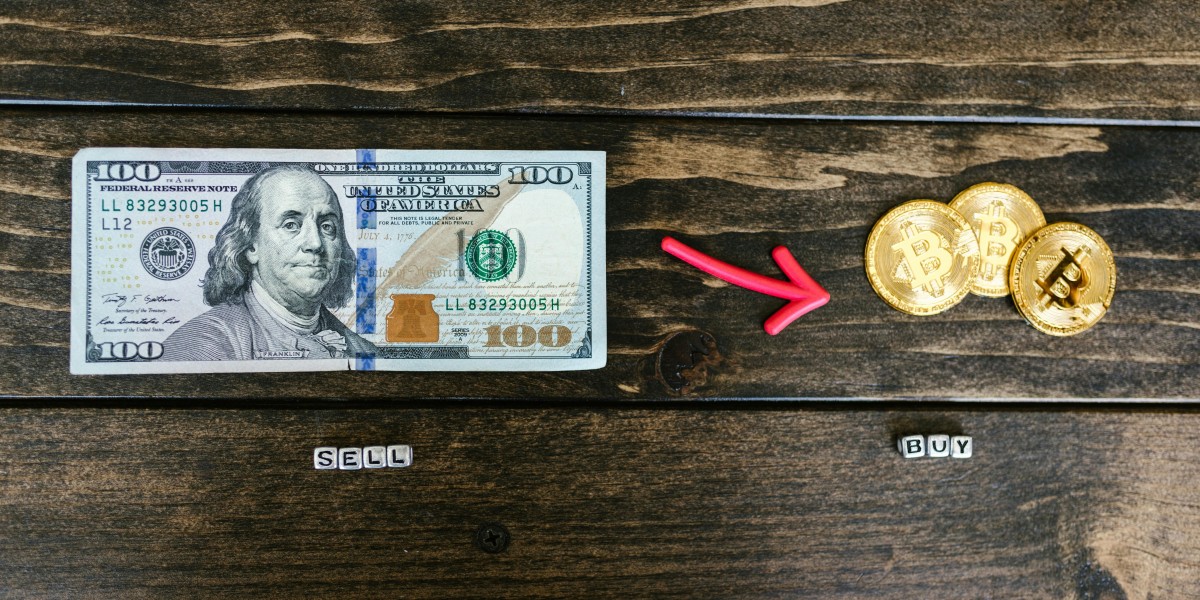Best Crypto Exchanger: Top Platforms for Secure and Efficient Cryptocurrency Trading in 2025
The world of cryptocurrency has evolved rapidly over the past decade, and one of the most essential tools for any crypto investor or enthusiast is a reliable crypto exchanger. Whether you're a seasoned trader or a newcomer in the digital asset space, choosing the best crypto exchanger is crucial for a seamless, secure, and cost-effective trading experience. In this article, we explore what makes a crypto exchanger stand out, the features to consider, and the top platforms in 2025.
What Is a Crypto Exchanger?
A crypto exchanger, often called a cryptocurrency exchange, is a platform that facilitates the buying, selling, and swapping of digital currencies such as Bitcoin (BTC), Ethereum (ETH), and other altcoins. There are different types of exchangers, including:
Centralized exchanges (CEX): Operated by a central authority, offering user-friendly interfaces and high liquidity.
Decentralized exchanges (DEX): Operate without intermediaries, allowing peer-to-peer transactions.
Hybrid exchanges: Combine features of both centralized and decentralized platforms.
Why Choosing the Best Crypto Exchanger Matters
Selecting the best crypto exchanger ensures:
Security of funds and personal data
Low trading fees and competitive rates
Access to a wide range of cryptocurrencies
Fast transaction times
User-friendly interface
Strong customer support
A poor choice, on the other hand, can lead to high fees, limited functionality, or even loss of funds due to scams or hacks.
Key Features to Consider When Choosing a Crypto Exchanger
Before diving into the best platforms, let’s explore the core criteria to evaluate any crypto exchanger:
1. Security
Security is the cornerstone of any crypto platform. Look for features like:
Two-factor authentication (2FA)
Cold storage for digital assets
Insurance policies
Regulatory compliance
2. Fees and Costs
Examine:
Trading fees (maker and taker)
Withdrawal and deposit charges
Hidden fees on currency conversion
3. Supported Cryptocurrencies
A good exchanger should support a wide range of coins, including major cryptocurrencies and promising altcoins.
4. User Interface and Experience
Ease of use is essential, especially for beginners. A clutter-free dashboard, educational resources, and mobile support are big pluses.
5. Liquidity and Trading Volume
High liquidity ensures that you can buy and sell assets at stable prices without major slippage.
6. Customer Support
Access to 24/7 support via chat, email, or phone is a hallmark of a reputable platform.
7. Regulatory Compliance
Platforms that adhere to international financial laws offer more credibility and safety.
Best Crypto Exchangers in 2025
Here are some of the top-rated crypto exchangers that stand out in 2025 based on performance, reputation, and user feedback:
1. Binance
Overview: Binance is the world’s largest centralized exchange by trading volume. It offers over 350 cryptocurrencies, advanced trading tools, and low fees.
Why It’s Great:
Competitive fees (0.1% standard)
Advanced trading features for pros
Binance Earn for passive income
Strong security protocols
Drawback: Some restrictions in the U.S. and Europe due to regulatory concerns.
2. Coinbase
Overview: Perfect for beginners, Coinbase is one of the most regulated and trusted exchanges based in the United States.
Why It’s Great:
Extremely user-friendly interface
High liquidity and fiat support
Strong regulatory compliance
Drawback: Higher fees compared to Binance and others.
3. Kraken
Overview: Known for its security and longevity in the market, Kraken is a top choice for both beginners and professionals.
Why It’s Great:
Excellent security track record
Margin and futures trading available
Competitive fees and global accessibility
Drawback: The interface may seem complex to new users.
4. KuCoin
Overview: KuCoin offers a vast selection of altcoins and innovative features like trading bots and lending.
Why It’s Great:
Supports over 600 coins
Built-in trading bots
Passive income options
Drawback: Less regulatory oversight than Coinbase or Kraken.
5. Bybit
Overview: Originally a derivatives platform, Bybit now supports spot trading, staking, and has integrated features for DeFi users.
Why It’s Great:
Intuitive trading interface
High leverage options
Strong focus on performance and speed
Drawback: Still expanding spot market features.
6. OKX
Overview: OKX combines CEX functionality with DeFi features, appealing to tech-savvy users looking for deeper integration with Web3.
Why It’s Great:
Web3 wallet integration
Vast selection of assets
NFT and DeFi access
Drawback: Complex for casual users.
7. Uniswap (DEX)
Overview: As a leading decentralized exchange, Uniswap allows users to trade directly from their wallets without intermediaries.
Why It’s Great:
Full user control over funds
Access to new and emerging tokens
No KYC requirement
Drawback: Higher gas fees on the Ethereum network.
Centralized vs. Decentralized Exchangers: Which Is Best?
The answer depends on your goals.
Centralized exchangers like Binance or Coinbase offer ease of use, high liquidity, and faster transactions.
Decentralized exchangers like Uniswap or PancakeSwap provide more privacy, autonomy, and access to emerging markets.
Many users choose to use both types for different purposes—centralized for day-to-day trading and decentralized for privacy and early investment opportunities.
Tips for Using Crypto Exchangers Safely
Here are essential tips to keep your funds secure:
Enable 2FA and withdrawal whitelists.
Never share your login credentials.
Avoid keeping large amounts on an exchange—use cold wallets.
Check URLs to avoid phishing scams.
Use exchanges that conduct regular audits and are transparent.
Emerging Trends in Crypto Exchanges (2025 and Beyond)
The crypto exchange space is evolving. Here are some key trends shaping the future:
1. AI-Powered Trading Tools
Many platforms now offer AI-driven analytics, predictive modeling, and auto-trading bots.
2. Integration with Traditional Finance
Exchangers are bridging gaps between crypto and fiat banking, offering debit cards, savings accounts, and credit options.
3. Decentralized Identity and KYC
Blockchain-based identity verification is gaining traction, offering more privacy and global compliance.
4. Cross-Chain Swaps
Interoperability is key. More exchanges now support seamless swapping between different blockchain ecosystems.
5. Staking and Yield Farming Integration
Exchanges are bundling trading with income-generation features like staking, farming, and liquidity pooling.
Final Thoughts: Choosing the Best Crypto Exchanger
Finding the best crypto exchanger is not a one-size-fits-all decision. Your choice depends on:
Your experience level
Desired features
Regulatory requirements in your country
Asset preferences
Fee sensitivity
For beginners, Coinbase and Kraken offer great starting points with robust security. For seasoned traders, Binance and KuCoin offer advanced tools and broad asset support. For privacy and full decentralization, Uniswap is unmatched.
Always remember: Do your own research (DYOR) and never invest more than you can afford to lose. The right exchanger can empower your crypto journey, while the wrong one could become a costly mistake.








